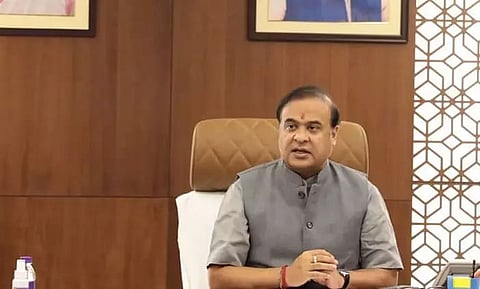
- Home
- Live Blog
- Breaking News
- Top Headlines
- Cities
- NE News
- Sentinel Media
- Sports
- Education
- Jobs

Assam Chief Minister Himanta Biswa Sarma on Saturday described the judiciary as the saviour of Indian democracy. He also said that the various landmark judgments passed by the judiciary on subjects such as the 'basic structure of the Indian Constitution, among others, have saved it from losing its spirit. This is a very significant statement coming from one of the most powerful and influential chief ministers of the country today. He made this observation while speaking at the Diamond Jubilee Celebration of the Bar Council of Assam, Nagaland, Mizoram, Arunachal Pradesh and Sikkim held in Guwahati. He particularly highlighted the fact that the Indian judiciary has always played a very significant role in upholding the rule of law and maintaining the fine balance of power among the four pillars of India's democracy, thereby ensuring that the fundamental rights and freedoms of the citizens remained intact. As he observed, the Indian judiciary has not kept its powers confined to only dispensing justice alone, but has also played a major catalytic role in empowering our citizens to be well informed about their rights and also upholding them through its pronouncements. While Sarma's observations are very timely, it is very important for all those who matter to also remember that the four pillars of democracy- the Legislature, Executive, Judiciary and Media – must act within their respective sacred domains without losing sight of the larger picture. After all, the strength of a democracy depends upon the strength of each pillar and the way pillars complement each other. Any shaky pillar weakens the democratic structure. The third pillar, i.e. the judiciary has to ensure that the laws of the land are implemented in letter and spirit and that a sense of justice and fair play pervades society. Needless to reiterate, the judiciary has the onerous responsibility to interpret laws to ensure that the legislature and the executive adhere to the constitutional framework and enact and implement laws in consonance with the basic tenets of the Indian Constitution. After all, it is the responsibility of all to ensure that justice delivery mechanisms must be accessible, credible, equitable and transparently even-handed.